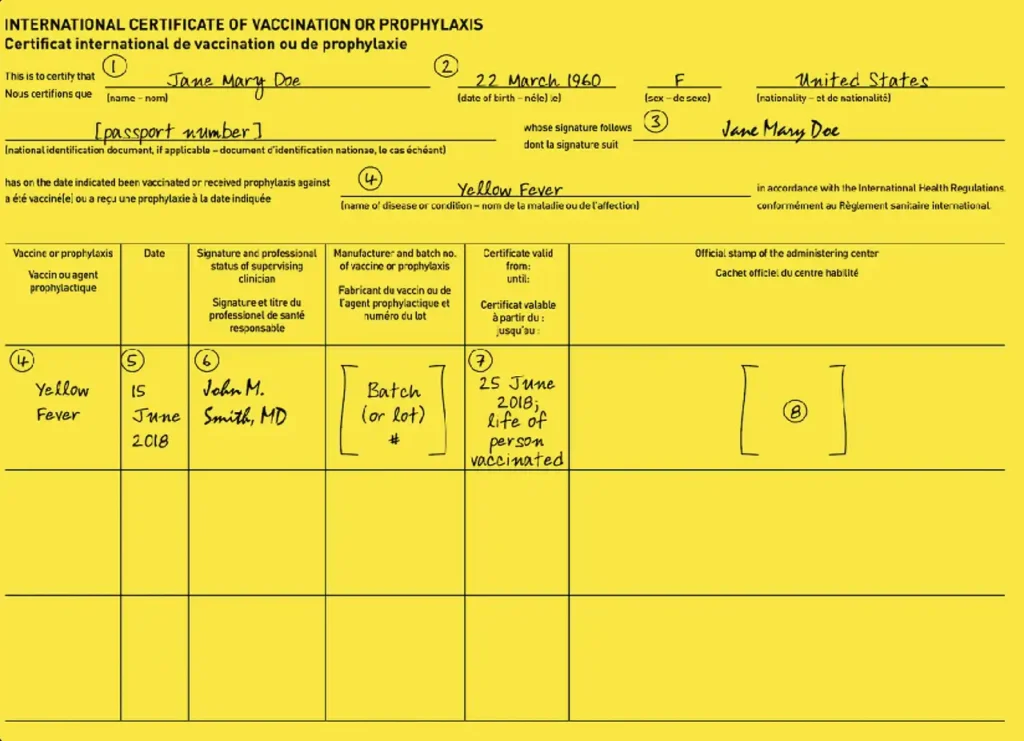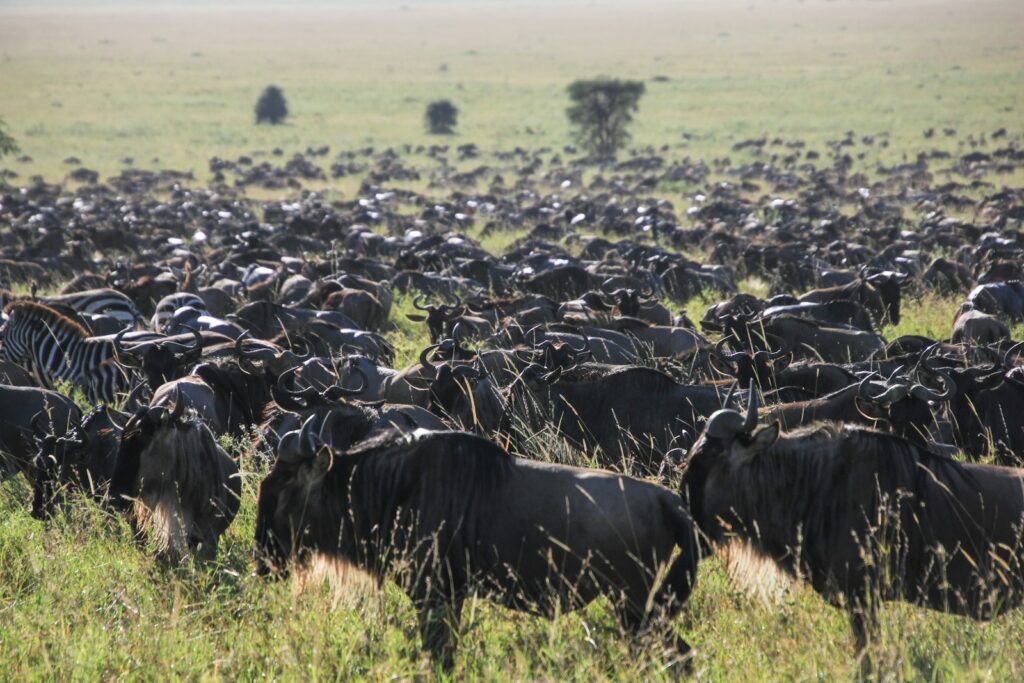Yellow Fever Vaccination Tanzania: Complete Safari Traveler’s Guide 2026

Yellow Fever Vaccination Tanzania: Complete Safari Traveler’s Guide 2026
Yellow fever vaccination Tanzania requirements represent one of the most critical health considerations for safari travelers planning their African adventure. Understanding Tanzania’s yellow fever vaccination policies, entry requirements, and health recommendations ensures smooth border crossings while protecting your health during your dream safari experience. Safari Stride provides this comprehensive guide to help travelers navigate yellow fever vaccination Tanzania requirements with confidence and clarity.
Table of Contents
Tanzania’s yellow fever vaccination requirements vary significantly depending on your travel history, nationality, and ports of entry, making it essential to understand the specific regulations that apply to your individual circumstances. The yellow fever vaccination Tanzania policies are designed to prevent the introduction of yellow fever virus into the country while balancing public health protection with tourism accessibility for international visitors.
Current yellow fever vaccination Tanzania requirements mandate vaccination certificates for travelers arriving from or transiting through countries with risk of yellow fever transmission. However, the interpretation and enforcement of these requirements can vary at different entry points, making comprehensive preparation essential for avoiding complications during your Tanzania safari adventure.
Safari Stride’s expertise in Tanzania travel regulations ensures our clients receive accurate, up-to-date information about yellow fever vaccination Tanzania requirements while providing guidance on obtaining necessary documentation and preparing for potential entry complications that could disrupt carefully planned safari itineraries.

Understanding Yellow Fever and Tanzania’s Risk Assessment
Yellow fever represents a serious viral disease transmitted by infected mosquitoes in certain tropical regions of Africa and South America. While Tanzania itself is not considered a high-risk yellow fever transmission area, the country maintains strict vaccination requirements to prevent imported cases that could establish local transmission cycles in areas with suitable mosquito vectors.
The yellow fever virus thrives in specific ecological conditions that include particular mosquito species, climate patterns, and wildlife reservoirs that support transmission cycles. Tanzania’s diverse ecosystems include areas that could potentially support yellow fever transmission if the virus were introduced, making prevention through vaccination requirements a crucial public health strategy.
Tanzania’s yellow fever vaccination requirements reflect international health regulations established by the World Health Organization and implemented through the International Health Regulations framework. These regulations aim to prevent international spread of yellow fever while allowing legitimate travel and trade to continue with appropriate health safeguards.
Understanding Tanzania’s risk assessment for yellow fever helps explain why the country maintains vaccination requirements despite having no current evidence of local transmission. The presence of Aedes aegypti mosquitoes in some urban areas and forest ecosystems that could support sylvatic transmission cycles justify preventive vaccination requirements for at-risk travelers.
The World Health Organization’s yellow fever vaccination recommendations provide the scientific foundation for Tanzania’s vaccination policies, with regular updates reflecting changing epidemiological conditions and risk assessments that may affect traveler requirements.
Historical yellow fever outbreaks in East Africa, including neighboring countries, demonstrate the potential for virus introduction and establishment in suitable ecological conditions. Tanzania’s vaccination requirements represent proactive measures to prevent such outbreaks while protecting both resident populations and international travelers.

Current Yellow Fever Vaccination Tanzania Requirements
Yellow fever vaccination Tanzania requirements currently mandate valid vaccination certificates for all travelers over 12 months of age arriving from countries with risk of yellow fever transmission. This requirement applies regardless of nationality, duration of stay, or purpose of visit, making vaccination essential for affected travelers planning Tanzania safaris.
The list of countries requiring yellow fever vaccination for Tanzania entry includes most of sub-Saharan Africa, parts of South America, and specific regions where yellow fever transmission occurs or has occurred recently. Travelers transiting through these countries for more than 12 hours may also be subject to vaccination requirements, even if they don’t leave airport transit areas.
Transit passengers spending more than 12 hours in airports located in yellow fever endemic countries must present valid vaccination certificates when entering Tanzania, regardless of whether they left the airport during their layover. This requirement catches many travelers by surprise and can result in entry denial or forced vaccination at borders.
Vaccination certificate validity requires documentation showing vaccination at least 10 days before arrival in Tanzania, with certificates remaining valid for life following World Health Organization updates that eliminated previous 10-year expiration requirements. However, some border officials may not be aware of these updated regulations, potentially creating complications for travelers with older certificates.
Exemptions from yellow fever vaccination Tanzania requirements are extremely limited and typically apply only to travelers with specific medical contraindications documented by qualified medical professionals. Religious or personal objections to vaccination are generally not accepted as valid exemptions under Tanzania’s current health regulations.
Enforcement of yellow fever vaccination Tanzania requirements occurs primarily at major entry points including Julius Nyerere International Airport in Dar es Salaam, Kilimanjaro International Airport, and major border crossings. However, enforcement consistency can vary between different entry points and individual immigration officials.

Countries Requiring Yellow Fever Vaccination for Tanzania Entry
Understanding which countries trigger yellow fever vaccination requirements for Tanzania entry is crucial for safari travelers planning complex itineraries that may include multiple African destinations or stopovers in affected regions. The list of affected countries is subject to change based on evolving epidemiological conditions and World Health Organization recommendations.
West African countries requiring yellow fever vaccination for subsequent Tanzania entry include virtually all nations in the region, from Senegal and Mali in the north to Angola and Democratic Republic of Congo in the south. Travelers visiting any West African destination before Tanzania must obtain vaccination regardless of actual yellow fever risk in specific areas visited.
Central African countries subject to yellow fever vaccination requirements include Cameroon, Central African Republic, Chad, Republic of Congo, Democratic Republic of Congo, Equatorial Guinea, and Gabon. Safari travelers combining Central African experiences with Tanzania visits must plan vaccination timing appropriately to meet the 10-day pre-arrival requirement.
East African countries requiring yellow fever vaccination for Tanzania entry include Ethiopia, Kenya, South Sudan, and Uganda, though specific requirements may vary based on areas visited within these countries. Travelers combining East African safari circuits must understand how their itinerary affects vaccination requirements.
South American countries subject to yellow fever vaccination requirements include most nations with yellow fever endemic areas, particularly Brazil, Colombia, Venezuela, Peru, Bolivia, and others where transmission occurs or has been documented recently. Travelers combining South American and African adventures must meet vaccination requirements for all destinations.
Island nations and territories may also trigger yellow fever vaccination requirements if they have documented transmission or serve as transit points for travelers from endemic areas. Cape Verde, São Tomé and Príncipe, and other island destinations may affect Tanzania entry requirements depending on specific circumstances.
Transit considerations become complex when travelers pass through multiple countries before reaching Tanzania, with each transit potentially affecting vaccination requirements depending on duration, airport policies, and individual circumstances that may not be immediately apparent during travel planning.

Obtaining Yellow Fever Vaccination
Obtaining yellow fever vaccination requires advance planning due to vaccine availability, appointment scheduling, and timing requirements that must be coordinated with travel dates. The yellow fever vaccine is only available at designated vaccination centers authorized to administer this specific immunization and issue international certificates.
Yellow fever vaccination centers are typically located in major cities and travel medicine clinics, with some countries having limited availability that requires advance booking weeks or months before desired vaccination dates. Safari Stride recommends identifying vaccination centers early in the travel planning process to ensure availability.
The yellow fever vaccine is a live attenuated vaccine that provides long-lasting immunity after a single dose, though effectiveness begins approximately 10 days after vaccination. This timing requirement means travelers must receive vaccination at least 10 days before arriving in Tanzania to meet entry requirements.
Cost considerations for yellow fever vaccination vary significantly between countries and vaccination providers, with costs ranging from government-subsidized rates to premium travel clinic pricing. Travel insurance may cover vaccination costs in some cases, though coverage varies widely between policies and providers.
Side effects from yellow fever vaccination are generally mild and may include local reactions at injection sites, mild fever, headache, and muscle aches that resolve within a few days. Serious adverse reactions are rare but require immediate medical attention if they occur following vaccination.
Medical contraindications to yellow fever vaccination include severe immunocompromising conditions, certain allergies, pregnancy in some circumstances, and age-related factors that may prevent safe vaccination. Travelers with medical concerns should consult qualified healthcare providers well in advance of travel dates.
International Certificate of Vaccination preparation requires proper documentation from authorized vaccination centers using official yellow cards that meet International Health Regulations standards. These certificates must include specific information about the vaccine, vaccination date, and healthcare provider to be accepted at Tanzania borders.

Yellow Fever Vaccination Certificate Requirements
Yellow fever vaccination certificates must meet specific international standards to be accepted for Tanzania entry, with requirements covering documentation format, required information, and authenticity verification that immigration officials use to validate vaccination status.
The International Certificate of Vaccination or Prophylaxis, commonly known as the “yellow card,” represents the only acceptable documentation for yellow fever vaccination status when entering Tanzania. This standardized document must be properly completed by authorized vaccination centers and include all required information fields.
Required information on yellow fever vaccination certificates includes traveler identification details, vaccination date, vaccine type and batch number, healthcare provider information, and official stamps or seals that authenticate the document. Missing or incomplete information may result in entry denial or required revaccination at borders.
Certificate validity begins 10 days after vaccination and continues for the individual’s lifetime following World Health Organization updates that eliminated previous 10-year expiration dates. However, travelers should be prepared to explain lifetime validity to border officials who may not be familiar with updated regulations.
Authentication requirements for yellow fever certificates may include specific stamps, seals, or signatures that verify the document’s legitimacy and prevent fraud. Tanzania immigration officials are trained to recognize authentic certificates and may reject documentation that appears suspicious or improperly completed.
Replacement certificates can be issued by original vaccination providers if documents are lost or damaged, though this process may take time and require verification of vaccination records. Travelers should photocopy certificates and store copies separately from originals to facilitate replacement if necessary.
Digital vaccination records and smartphone applications are not currently accepted as valid documentation for Tanzania yellow fever requirements, with only physical yellow cards meeting current standards. However, digital systems may supplement physical documentation for record-keeping purposes.

Medical Exemptions and Special Circumstances
Medical exemptions from yellow fever vaccination Tanzania requirements are strictly limited to situations where vaccination poses significant health risks that outweigh protection benefits. These exemptions require comprehensive medical documentation from qualified healthcare providers and may not guarantee entry approval.
Immunocompromising conditions that may qualify for yellow fever vaccination exemptions include severe HIV infection, ongoing chemotherapy, organ transplant recipients, and other conditions that prevent safe live vaccine administration. However, these same conditions may increase yellow fever risk if infection occurs.
Age-related exemptions may apply to infants under 9 months of age who cannot safely receive yellow fever vaccination, though travel with unvaccinated infants to areas requiring vaccination is generally discouraged due to infection risks and entry complications.
Pregnancy considerations for yellow fever vaccination involve balancing maternal and fetal health risks against potential infection consequences, with decisions requiring consultation between travelers and qualified healthcare providers familiar with yellow fever vaccination during pregnancy.
Allergy contraindications to yellow fever vaccination include severe reactions to vaccine components, particularly egg proteins, though many individuals with mild egg allergies can safely receive vaccination under medical supervision with appropriate precautions.
Medical exemption documentation must meet specific standards including detailed medical justification, healthcare provider credentials, and official letterhead or stamps that verify authenticity. Tanzania immigration officials may scrutinize exemption documents carefully and may refuse entry despite valid medical exemptions.
Alternative entry procedures for medically exempted travelers may include quarantine periods, additional health monitoring, or entry denial depending on current health policies and individual circumstances that cannot be predicted in advance of travel.

Entry Procedures and Border Requirements
Tanzania border entry procedures for yellow fever vaccination verification vary between different entry points but generally involve document inspection, potential health questioning, and verification of vaccination certificate authenticity during standard immigration processing.
Airport entry procedures at major Tanzania airports typically include yellow fever certificate verification during immigration processing, with dedicated health officials sometimes reviewing documentation separately from standard immigration procedures. Travelers should have certificates easily accessible during entry processing.
Land border crossings may have different procedures and varying levels of yellow fever requirement enforcement, with some remote crossings having limited capacity for thorough document verification while others maintain strict adherence to vaccination requirements regardless of location or staffing.
Port entry procedures for travelers arriving by sea follow similar vaccination verification requirements, though marine entry points may have unique procedures reflecting different logistical considerations and passenger processing systems compared to air or land entry points.
Vaccination on arrival is not available at Tanzania borders, meaning travelers who cannot provide valid yellow fever certificates face entry denial and potential deportation to origin countries. This policy makes advance vaccination essential rather than optional for affected travelers.
Appeal procedures for entry denial due to yellow fever vaccination issues are limited and may involve detention, forced departure, or emergency vaccination if available, though such procedures are unpredictable and may cause significant travel disruption and additional costs.
Emergency medical treatment for travelers who develop yellow fever symptoms after arrival in Tanzania involves immediate medical attention, potential isolation procedures, and coordination with public health authorities who monitor disease surveillance and outbreak prevention.

Health Considerations Beyond Yellow Fever
Yellow fever vaccination represents just one component of comprehensive health preparation for Tanzania safari travel, with additional health considerations including malaria prevention, routine vaccinations, and other tropical disease precautions that affect traveler health and safety.
Malaria prevention for Tanzania travel is essential regardless of yellow fever vaccination status, with the Centers for Disease Control and Prevention (CDC) recommending antimalarial medication and mosquito bite prevention for all travelers to most areas of Tanzania.
Routine vaccinations should be current for Tanzania travel, including measles-mumps-rubella, diphtheria-tetanus-pertussis, varicella, polio, and annual influenza vaccines that provide protection against diseases that remain risks in Tanzania and during international travel.
Hepatitis A and B vaccinations are recommended for Tanzania travelers due to potential exposure through contaminated food, water, or other routes that may occur during safari activities or cultural experiences that involve close community contact.
Typhoid vaccination may be recommended for Tanzania travelers, particularly those visiting rural areas, staying in accommodations with questionable sanitation, or participating in activities that involve exposure to potentially contaminated food or water sources.
Meningitis vaccination considerations may apply to Tanzania travelers during certain seasons or in specific regions where meningococcal disease transmission risks are elevated, though routine vaccination is not typically required for most tourist activities.
Rabies pre-exposure prophylaxis may be recommended for travelers engaging in activities with potential animal contact, including walking safaris, community visits, or extended stays in rural areas where immediate post-exposure treatment may not be readily available.
Travel Insurance and Medical Coverage
Travel insurance considerations for Tanzania safari travelers should include coverage for yellow fever vaccination requirements, potential medical treatment, emergency evacuation, and other health-related expenses that may arise during travel to remote areas with limited medical facilities.
Medical evacuation insurance becomes particularly important for Tanzania safari travelers due to the remote locations of many parks and activities, with potential needs for emergency transport to major medical facilities that may be hours or days away from incident locations.
Pre-existing condition coverage in travel insurance policies may affect yellow fever vaccination exemptions and related medical needs, with some policies requiring disclosure of medical conditions that prevent vaccination or create increased health risks during travel.
Vaccination coverage in travel insurance may include reimbursement for required vaccinations, though coverage varies widely between policies and providers, making careful policy review essential for understanding what expenses may be covered.
Emergency medical treatment coverage should include provisions for tropical disease treatment, as travel insurance policies may have specific exclusions or limitations for diseases like yellow fever, malaria, or other conditions common in tropical destinations.
Cancellation coverage related to yellow fever vaccination issues may apply if travelers cannot obtain required vaccinations due to medical contraindications, vaccine shortages, or other circumstances that prevent meeting entry requirements.
Documentation requirements for travel insurance claims related to yellow fever vaccination or related medical issues typically require comprehensive medical records, vaccination certificates, and other documentation that supports coverage claims.

Safari Planning with Yellow Fever Considerations
Safari itinerary planning must incorporate yellow fever vaccination requirements when designing multi-country tours or complex routing that involves transit through countries requiring vaccination for subsequent Tanzania entry. These considerations may significantly affect route planning and timing.
Multi-country safari planning becomes complex when yellow fever vaccination requirements vary between destinations, with some countries requiring vaccination while others do not, creating situations where vaccination timing and routing must be carefully coordinated to meet all entry requirements.
Seasonal considerations for yellow fever vaccination may affect safari timing, particularly for travelers combining Tanzania with other destinations during peak safari seasons when vaccination appointments may be more difficult to schedule within required timeframes.
Group travel considerations include ensuring all participants meet yellow fever vaccination requirements, with group leaders responsible for verifying that individual travelers have appropriate documentation to avoid entry complications that could affect entire group itineraries.
Last-minute travel planning may be complicated by yellow fever vaccination requirements due to the 10-day advance requirement and limited vaccination center availability, making spontaneous Tanzania safari booking challenging for travelers subject to vaccination requirements.
Budget considerations for safari planning should include yellow fever vaccination costs, potential additional medical consultations, and travel insurance coverage that addresses vaccination-related expenses and potential complications.
Equipment and packing considerations may be affected by yellow fever vaccination, particularly for travelers with medical conditions or medication requirements related to vaccination exemptions or side effects that require special preparation or equipment during safari activities.
Common Questions and Misconceptions
Yellow fever vaccination Tanzania requirements generate numerous questions and misconceptions among safari travelers, with common misunderstandings potentially causing entry complications or unnecessary health concerns that can be addressed through accurate information and proper preparation.
Lifetime validity confusion persists among some travelers and even border officials who may not be aware that yellow fever vaccination certificates no longer expire after 10 years, requiring travelers to be prepared to explain current regulations and provide appropriate documentation.
Transit exemptions are commonly misunderstood, with many travelers believing that airport transit does not trigger vaccination requirements when connections exceed 12 hours or involve leaving secure transit areas, both of which may subject travelers to yellow fever vaccination requirements.
Risk perception varies widely among travelers, with some overestimating yellow fever transmission risks in Tanzania while others underestimate the importance of meeting entry requirements regardless of actual health risks in destinations visited.
Alternative vaccination options do not exist for yellow fever, with no substitutes or alternative immunizations accepted for meeting Tanzania entry requirements, making proper yellow fever vaccination essential rather than optional for affected travelers.
Religious exemptions are generally not accepted for yellow fever vaccination Tanzania requirements, with medical contraindications representing the only widely recognized basis for exemption from vaccination requirements.
Child vaccination requirements apply to travelers over 12 months of age, with parents responsible for ensuring children meet vaccination requirements and carry appropriate documentation during family safari adventures.
Emergency vaccination availability at Tanzania borders is extremely limited or non-existent, making advance vaccination essential rather than relying on arrival vaccination options that may not be available when needed.
Staying Updated on Requirements
Yellow fever vaccination Tanzania requirements may change based on evolving epidemiological conditions, World Health Organization recommendations, and Tanzania government policy updates that can affect traveler requirements with relatively short notice periods.
Official information sources for current yellow fever vaccination Tanzania requirements include Tanzania Ministry of Health, Tanzania Immigration Services, and World Health Organization publications that provide authoritative guidance on current policies and any recent changes.
Embassy and consulate resources provide country-specific guidance on yellow fever vaccination requirements for Tanzania travel, with diplomatic missions typically maintaining current information about entry requirements that affect their citizens’ travel plans.
Travel medicine clinics often maintain current information about destination-specific vaccination requirements and can provide both vaccination services and updated guidance on regulatory changes that may affect travel planning and preparation.
Professional travel agencies specializing in Tanzania safari travel, like Safari Stride, maintain current information about yellow fever vaccination requirements and provide clients with accurate guidance that reflects both official requirements and practical entry experiences.
Medical professional consultation remains essential for travelers with specific health concerns or complex medical histories that may affect yellow fever vaccination recommendations or exemption eligibility, with qualified healthcare providers offering individualized guidance.
Regular requirement monitoring becomes important for travelers with advance bookings or complex itineraries that may be affected by regulatory changes occurring between initial planning and actual travel dates.

Conclusion: Ensuring Safe and Compliant Tanzania Travel
Yellow fever vaccination Tanzania requirements represent a critical component of safari travel preparation that requires attention to detail, advance planning, and accurate information to ensure smooth entry and optimal health protection during African adventures. Understanding these requirements and properly preparing for compliance protects both individual travelers and broader public health while enabling incredible wildlife experiences in one of Africa’s premier safari destinations.
Safari Stride’s commitment to providing accurate, current information about yellow fever vaccination Tanzania requirements reflects our dedication to ensuring client safety and travel success while navigating complex health regulations that can significantly impact safari experiences. Our expertise in Tanzania travel requirements helps clients avoid common pitfalls while ensuring full compliance with all entry requirements.
Proper preparation for yellow fever vaccination Tanzania requirements involves understanding individual risk factors, obtaining appropriate vaccinations with adequate timing, securing proper documentation, and preparing for potential complications that may arise during entry procedures. This comprehensive approach ensures that health requirements enhance rather than complicate safari adventures.
The investment in proper yellow fever vaccination and preparation pays dividends in travel peace of mind, entry confidence, and health protection that allow travelers to focus on enjoying incredible wildlife experiences rather than worrying about documentation or health risks that could disrupt carefully planned safari adventures.
Tanzania’s spectacular wildlife, diverse ecosystems, and incredible safari opportunities await travelers who properly prepare for yellow fever vaccination requirements while demonstrating respect for local health regulations that protect both visitors and resident populations from preventable diseases.
Contact Safari Stride today for expert guidance on yellow fever vaccination Tanzania requirements and comprehensive safari planning that addresses all health considerations while maximizing your African adventure potential. Our experienced team ensures that regulatory compliance becomes a seamless component of exceptional safari experiences that exceed expectations while maintaining the highest safety and preparation standards.
Recent Posts





